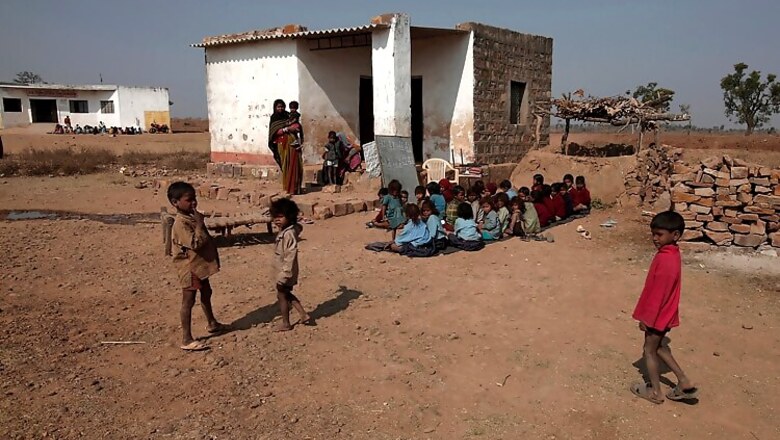
views
As paediatricians, my fraternity and I work to ensure that infant and child mortality is curtailed, infectious diseases are prevented or controlled, healthy lifestyles are fostered, and children and adolescents with chronic conditions are able to find relief and live as normal a life as possible. In fact, as paediatricians, we concern ourselves with more than physical welfare – we also manage the mental and emotional well-being of our patients.
To discharge our duties effectively, we rely on proven and impactful interventions that prevent disease and promote good health among our beneficiaries. Vaccines are one such indispensable tool – they protect infants and children against preventable infectious diseases, affording them a healthy start to life. When our patients are unable to access such essential interventions, our job turns into a challenge.
That said, the decision to introduce the rotavirus vaccine into India’s routine immunization schedule is a welcome move. In 2011, the Indian Academy of Paediatrics (IAP) included the rotavirus vaccine in its recommended immunization schedule, recognizing that the vaccine gives us a very real shot at reducing the morbidity and mortality of diarrheal disease, which causes lakhs of hospitalizations and outpatient visits each year, leaving an Indian child dead from rotavirus every 10 minutes.
Rotavirus is a major cause of moderate and severe diarrhea and deaths in under-five children in India. Every child is vulnerable, regardless of where they live, and for those in places without accessible healthcare it can be a death sentence. It spreads easily from person-to-person and can survive on hands and surfaces for long periods of time. The vaccine is important because improvements in water, sanitation, and hygiene alone do not stop rotavirus.
What’s more, studies have demonstrated that a single episode of moderate-to-severe diarrhea in young children disproportionately increases susceptibility to death by other causes. Being exposed to disease at an early age intensifies the risk of malnutrition, which, in turn, leads to poor physical, cognitive and emotional growth. Contrariwise, a child protected by the rotavirus vaccine averts weakness and disease, and is better placed to perform and have a productive life.
Unlike some other diseases, treatment is not always the best available option for diarrhoea, and prevention and protection may be a better alternative. While oral rehydration therapy (ORT) is effective in treating dehydration resulting from mild rotavirus infections, the disease cannot be treated with antibiotics or other drugs. For these reasons, vaccination is our best hope against this disease. Today, rotavirus vaccines are saving lives, reducing disease and suffering, and improving health worldwide.
Vaccines, when seen within the larger framework of preventive health, are paediatrician-approved tools that carry numerous direct and indirect benefits. They are cost-effective, they help families avoid hospitalization costs that could potentially impoverish them, and evidence has linked them to increased school attendance, educational attainment and productivity.
The significance of early childhood interventions cannot be overstated – a healthy start to life is vital for all children to grow up to be adults in fine fettle. While many have the guidance of paediatricians and doctors, many, many more rely on public services. Among these, there is a significant proportion of systemically disadvantaged groups of children that are most vulnerable and need to be provided access to this life-saving vaccine.
The polio programme showed us that providing life-saving vaccines was not only possible throughout the length and breadth of India but that it was accomplished. The Mission Indradhanush immunization campaign that has been initiated is well positioned to ensure that the vaccine reaches these groups. The government’s Swachh Bharat Abhiyan, with its focus on hygiene and sanitation for all, enables a comprehensive approach to prevention and will make certain that the vaccine is effective.
As paediatricians, we endorse the move to introduce the rotavirus vaccine into the national immunization schedule. That every child gets an equal shot at protection helps us better attune ourselves as medical practitioners. The vaccine is a cost-effective intervention poised to make a much needed positive impact on public health in India. It will go a long way to ensure that Indian infants and children are protected against diarrhoea, one of the largest killers of Indian children.
(Dr. Pramod Jog is a paediatrician and neonatalogist in Pune and is the Chairman of ACVIP - Advisory Committee on Vaccines & Immunisation Practices.)



















Comments
0 comment